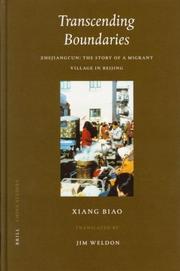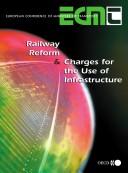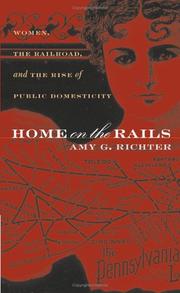| Listing 1 - 10 of 12 | << page >> |
Sort by
|
Book
ISBN: 9050954162 9789050954167 Year: 2005 Publisher: Antwerpen: Intersentia,
Abstract | Keywords | Export | Availability | Bookmark
 Loading...
Loading...Choose an application
- Reference Manager
- EndNote
- RefWorks (Direct export to RefWorks)
verbintenissenrecht --- Law of obligations. Law of contract --- Economic law --- Commercial law --- franchising --- contracten --- Belgium --- Franchises (Retail trade) --- Concessions (Commerce de détail) --- Law and legislation --- Droit --- KBC0507 --- 347.45 --- 347.74 --- Bijzondere overeenkomsten --(algemeen) --- Handelsovereenkomsten. Wissels. Mandaat tot betaling. Assignaties --- 347.74 Handelsovereenkomsten. Wissels. Mandaat tot betaling. Assignaties --- 347.45 Bijzondere overeenkomsten --(algemeen) --- Concessions (Commerce de détail) --- DROIT COMMERCIAL --- CONTRAT DE FRANCHISE --- CONCESSION DE VENTE --- BAIL COMMERCIAL --- CONCURRENCE --- CONFLITS --- CONTRATS COMMERCIAUX --- FRANCHISE

ISBN: 9004142010 9786610867455 1429452587 9047406796 1280867450 1433707608 Year: 2005 Volume: 5 Publisher: Leiden ; Boston : Brill,
Abstract | Keywords | Export | Availability | Bookmark
 Loading...
Loading...Choose an application
- Reference Manager
- EndNote
- RefWorks (Direct export to RefWorks)
Based on the author's own six years' fieldwork, this book looks at critical features of China's current social change, recounting how, against the odds, a group of migrants created their own major community outside of the State system and looking at that communities' interaction with the State.
S11/1080 --- S03/0631 --- S11/0470 --- China: Social sciences--Migration inside China --- China: Geography, description and travel--Beijing (incl. concessions) --- China: Social sciences--Cities: since 1949 --- Migration, Internal --- Internal migration --- Mobility --- Population geography --- Internal migrants --- Beijing (China) --- Zhejiangcun (Beijing, China) --- Zhejiang Village (Beijing, China) --- Description and travel. --- Description and travel --- Migration [Internal ] --- China

ISBN: 1861892357 1780232535 Year: 2005 Publisher: London : Reaktion,
Abstract | Keywords | Export | Availability | Bookmark
 Loading...
Loading...Choose an application
- Reference Manager
- EndNote
- RefWorks (Direct export to RefWorks)
Tian an Men (Beijing, China) --- Beijing (China) --- Tian'anmen (Pékin, Chine) --- Pékin (Chine) --- History --- Civilization --- Social conditions --- Histoire --- Civilisation --- Conditions sociales --- S03/0631 --- S17/1610 --- S11/0470 --- China: Geography, description and travel--Beijing (incl. concessions) --- China: Art and archaeology--Civil architecture --- China: Social sciences--Cities: since 1949

ISBN: 1280358017 9786610358014 9282103528 928210351X Year: 2005 Publisher: Paris : ECMT : Distributed by OECD Publication Service,
Abstract | Keywords | Export | Availability | Bookmark
 Loading...
Loading...Choose an application
- Reference Manager
- EndNote
- RefWorks (Direct export to RefWorks)
Over the last few years, much progress has been made in developing rail charges to ensure non-discriminatory access to, and efficient use of national rail networks, but in Europe the international dimension is still missing, particularly in terms of the freight market. Integration of European markets should provide great opportunities for rail freight transport to grow. The purpose of this report is to set out how barriers to this growth - arising from differences in the way trains pay to use national networks - can be overcome. It recommends moving to a set of simple charges for freight that create similar incentives for the management and planning of train operations across national borders.--publisher summary.
Transport --- Railroads --- Railroads and state --- Infrastructure (Economics) --- Business & Economics --- Transportation Economics --- Management --- Management. --- Government ownership of railroads --- Government regulation of railroads --- Nationalization of railroads --- Railroads, Nationalization of --- State and railroads --- State ownership of railroads --- Iron horses (Railroads) --- Lines, Railroad --- Rail industry --- Rail lines --- Rail transportation --- Railroad industry --- Railroad lines --- Railroad transportation --- Railway industry --- Railways --- Government ownership --- Government policy --- Regulation --- State supervision --- Transportation and state --- Railroad law --- Communication and traffic --- Concessions --- Public utilities --- Transportation --- Trusts, Industrial

ISBN: 080787647X 9780807876473 0807829269 9780807829264 080785591X 9780807855911 9798890877925 Year: 2005 Publisher: Chapel Hill ; London : University of North Carolina Press,
Abstract | Keywords | Export | Availability | Bookmark
 Loading...
Loading...Choose an application
- Reference Manager
- EndNote
- RefWorks (Direct export to RefWorks)
Amy G. Richter follows women travelers onto trains and considers the consequences of their presence. White men and women domesticated the railroad for themselves and paved the way for a racially segregated and class-stratified public space that freed women from the home yet preserved the railroad as a masculine domain.
Railroads --- Sex role --- Women --- Human females --- Wimmin --- Woman --- Womon --- Womyn --- Females --- Human beings --- Femininity --- Iron horses (Railroads) --- Lines, Railroad --- Rail industry --- Rail lines --- Rail transportation --- Railroad industry --- Railroad lines --- Railroad transportation --- Railway industry --- Railways --- Communication and traffic --- Concessions --- Public utilities --- Transportation --- Trusts, Industrial --- History --- Social aspects --- E-books --- 15.85 history of America. --- Eisenbahn. --- Femmes --- Frau. --- Geschlechterrolle. --- Openbaar leven. --- Persoonlijke levenssfeer. --- Railroads. --- Reizigers. --- Rôle selon le sexe --- Sex role. --- Spoorwegen. --- Vrouwen. --- Women. --- Histoire --- Social aspects. --- 1800-1899. --- Geschichte 1800-1900. --- USA. --- United States.
Book
Year: 2005 Publisher: Washington, D.C., The World Bank,
Abstract | Keywords | Export | Availability | Bookmark
 Loading...
Loading...Choose an application
- Reference Manager
- EndNote
- RefWorks (Direct export to RefWorks)
An important issue in multilateral trade negotiations is the approach taken to reduce tariffs. Francois, Martin, and Manole believe that there are important advantages in formula approaches and survey a range of options between the sharply top-down Swiss formula and proportional cuts in tariffs. Over the range the authors consider, they find that the economic efficiency impacts for the importer are not greatly influenced by the extent to which higher tariffs face bigger cuts. However, top-down approaches appear to be more effective in reducing tariff escalation, and provide greater market access gains to poor countries. This paper is a product of the Trade Team, Development Research Group.
Agribusiness --- Agriculture --- Debt Markets --- Export Competitiveness --- Finance and Financial Sector Development --- Free Trade --- Import Volumes --- International Economics & Trade --- International Trade --- International Trade and Trade Rules --- Market Access --- Market Access Concessions --- Member Countries --- Multilateral Negotiations --- Multilateral Trade Negotiations --- Public Sector Development --- Regional Trade --- Set Of Tariffs --- Tariff --- Tariff Changes --- Tariff Negotiations --- Tariff Reduction --- Tariff Reductions --- Tariff Revenue --- Tariff Revenues --- Tariffs --- Trade Policy --- Trading Partners --- World Prices
Book
ISBN: 9282103544 Year: 2005 Publisher: Paris : CEMT-Conference europeenne des ministres des transports : OCDE,
Abstract | Keywords | Export | Availability | Bookmark
 Loading...
Loading...Choose an application
- Reference Manager
- EndNote
- RefWorks (Direct export to RefWorks)
D’importants progrès ont été réalisés ces dernières années dans l’élaboration de redevances ferroviaires au niveau national. Des redevances ont été mises en place pour assurer un accès non discriminatoire aux réseaux de chemin de fer et favoriser l’utilisation efficace de ces réseaux. Il y manque toutefois en Europe la dimension internationale, en particulier pour le marché du fret. L’intégration des marchés européens devrait ouvrir des perspectives de croissance très prometteuses au transport ferroviaire de marchandises.L’objet de ce rapport est de faire le point sur les moyens de surmonter les obstacles à cette croissance, lesquels découlent des disparités qui existent dans les redevances payées par les opérateurs pour utiliser les réseaux ferroviaires nationaux. Ce rapport recommande de mettre en œuvre un barème de redevances simples pour le transport de marchandises.
Electronic books. -- local. --- Infrastructure (Economics) -- Europe. --- Railroads -- Europe -- Management. --- Railroads and state -- Europe. --- Business & Economics --- Transportation Economics --- Railroads --- Railroads and state --- Infrastructure (Economics) --- Management. --- Government ownership of railroads --- Government regulation of railroads --- Nationalization of railroads --- Railroads, Nationalization of --- State and railroads --- State ownership of railroads --- Iron horses (Railroads) --- Lines, Railroad --- Rail industry --- Rail lines --- Rail transportation --- Railroad industry --- Railroad lines --- Railroad transportation --- Railway industry --- Railways --- Government ownership --- Government policy --- Regulation --- State supervision --- Transportation and state --- Railroad law --- Communication and traffic --- Concessions --- Public utilities --- Transportation --- Trusts, Industrial --- Management
Book
Abstract | Keywords | Export | Availability | Bookmark
 Loading...
Loading...Choose an application
- Reference Manager
- EndNote
- RefWorks (Direct export to RefWorks)
The proliferation of preferential trade liberalization over the last 20 years has raised the question of whether it slows down multilateral trade liberalization. Recent theoretical and empirical evidence indicates this is the case even for unilateral preferences that developed countries provide to small and poor countries but there is no estimate of the resulting welfare costs. To avoid this stumbling block effect we suggest replacing unilateral preferences by a fixed import subsidy. We argue that this scheme would reduce the drag of preferences on multilateral liberalization and generate a Pareto improvement. More importantly, we provide the first estimates of the welfare cost of preferential liberalization as a stumbling block to multilateral liberalization. By combining recent estimates of the stumbling block effect of preferences with data for 170 countries and over 5,000 products we calculate the welfare effects of the United States, European Union and Japan switching from unilateral preferences to Least Developed Countries to the import subsidy scheme. Even in a model with no dynamic gains to trade we find that the switch produces an annual net welfare gain for the 170 countries (USD 4,354 million) and for each group: the United States, European Union and Japan (USD 2,934 million), Least Developed Countries (USD 520 million) and the rest of the world (USD 900 million).
Balance Of Payments --- Competitive Position --- Currencies and Exchange Rates --- Debt Markets --- Economic Theory and Research --- Emerging Markets --- Export Markets --- Finance and Financial Sector Development --- Free Trade --- International Economics & Trade --- International Trade and Trade Rules --- Law and Development --- Macroeconomics and Economic Growth --- Market Access --- Multilateral Liberalization --- Multilateral Trade Liberalization --- Political Economy --- Preferential Access --- Preferential Tariff --- Preferential Trade --- Preferential Trade Agreements --- Preferential Trade Liberalization --- Private Sector Development --- Public Sector Development --- Tariff --- Tariff Concessions --- Tariffs --- Tax Law --- Trade --- Trade and Regional Integration --- Trade Negotiations --- Trade Policy --- Trade Preferences --- Unilateral Trade --- World Markets --- World Trade
Book
Abstract | Keywords | Export | Availability | Bookmark
 Loading...
Loading...Choose an application
- Reference Manager
- EndNote
- RefWorks (Direct export to RefWorks)
The proliferation of preferential trade liberalization over the last 20 years has raised the question of whether it slows down multilateral trade liberalization. Recent theoretical and empirical evidence indicates this is the case even for unilateral preferences that developed countries provide to small and poor countries but there is no estimate of the resulting welfare costs. To avoid this stumbling block effect we suggest replacing unilateral preferences by a fixed import subsidy. We argue that this scheme would reduce the drag of preferences on multilateral liberalization and generate a Pareto improvement. More importantly, we provide the first estimates of the welfare cost of preferential liberalization as a stumbling block to multilateral liberalization. By combining recent estimates of the stumbling block effect of preferences with data for 170 countries and over 5,000 products we calculate the welfare effects of the United States, European Union and Japan switching from unilateral preferences to Least Developed Countries to the import subsidy scheme. Even in a model with no dynamic gains to trade we find that the switch produces an annual net welfare gain for the 170 countries (USD 4,354 million) and for each group: the United States, European Union and Japan (USD 2,934 million), Least Developed Countries (USD 520 million) and the rest of the world (USD 900 million).
Balance Of Payments --- Competitive Position --- Currencies and Exchange Rates --- Debt Markets --- Economic Theory and Research --- Emerging Markets --- Export Markets --- Finance and Financial Sector Development --- Free Trade --- International Economics & Trade --- International Trade and Trade Rules --- Law and Development --- Macroeconomics and Economic Growth --- Market Access --- Multilateral Liberalization --- Multilateral Trade Liberalization --- Political Economy --- Preferential Access --- Preferential Tariff --- Preferential Trade --- Preferential Trade Agreements --- Preferential Trade Liberalization --- Private Sector Development --- Public Sector Development --- Tariff --- Tariff Concessions --- Tariffs --- Tax Law --- Trade --- Trade and Regional Integration --- Trade Negotiations --- Trade Policy --- Trade Preferences --- Unilateral Trade --- World Markets --- World Trade
Book
ISBN: 280272178X 9782802721789 Year: 2005 Volume: 7 Publisher: Bruxelles: Bruylant,
Abstract | Keywords | Export | Availability | Bookmark
 Loading...
Loading...Choose an application
- Reference Manager
- EndNote
- RefWorks (Direct export to RefWorks)
Law of obligations. Law of contract --- Law of civil procedure --- European Union --- Belgium --- Arbitragerecht --- Colloques --- Colloquia --- Droit commercial --- Droit de l'arbitrage --- Handelsrecht --- International commercial arbitration --- Franchises (Retail trade) --- Arbitrage commercial international --- Concessions (Commerce de détail) --- Congresses --- Law and legislation --- Congrès --- Droit --- Arbitration and award --- Distributors (Commerce) --- Dispute resolution (law) --- Arbitrage (droit)--Belgique--Congres. --- Arbitrage (droit international prive)--Congres. --- Circuits de distribution--Droit--Belgique--Congres. --- Circuits de distribution--Droit--Congres. --- Concurrence--Droit--Congres. --- Legal status, laws, etc. --- 347.91 --- BE / Belgium - België - Belgique --- 341.6 --- 347.762 --- NBB congres --- V11 - Droit judiciaire privé - Gerechtelijk privaatrecht --- 347.91 Bijzondere privaatrechtelijke procedures. Procesvoering --- Bijzondere privaatrechtelijke procedures. Procesvoering --- Arbitrage en internationale rechtspraak. --- Mandaat. Lastgeving. Vertegenwoordigers. Agentschap. Zakenkantoor. --- Arbitrage (droit)--Belgique--Congrès. --- Arbitrage (droit international privé)--Congrès. --- Circuits de distribution--Droit--Belgique--Congrès. --- Circuits de distribution--Droit--Congrès. --- Concurrence--Droit--Congrès. --- Concessions (Commerce de détail) --- Congrès --- Distributers (Commerce) --- Industrial distributors --- Jobbers --- Sole distributors --- Wholesalers --- Businesspeople --- ADR (Dispute resolution) --- Alternative dispute resolution --- Appropriate dispute resolution --- Collaborative law --- Conflict resolution --- Dispute processing --- Dispute settlement --- Justice, Administration of --- Mediation --- Neighborhood justice centers --- Third parties (Law) --- Arbitral awards --- Awards and arbitration --- Commercial arbitration --- Civil procedure --- Commercial law --- Compromise (Law) --- Legal status, laws, etc --- Arbitrage en internationale rechtspraak --- Mandaat. Lastgeving. Vertegenwoordigers. Agentschap. Zakenkantoor --- DROIT ECONOMIQUE ET COMMERCIAL --- DROIT COMMERCIAL --- DISTRIBUTION COMMERCIALE --- COMMERCE ET COMMERCANTS --- INTERMEDIAIRES COMMERCIAUX --- ARBITRAGE
| Listing 1 - 10 of 12 | << page >> |
Sort by
|

 Search
Search Feedback
Feedback About UniCat
About UniCat  Help
Help News
News